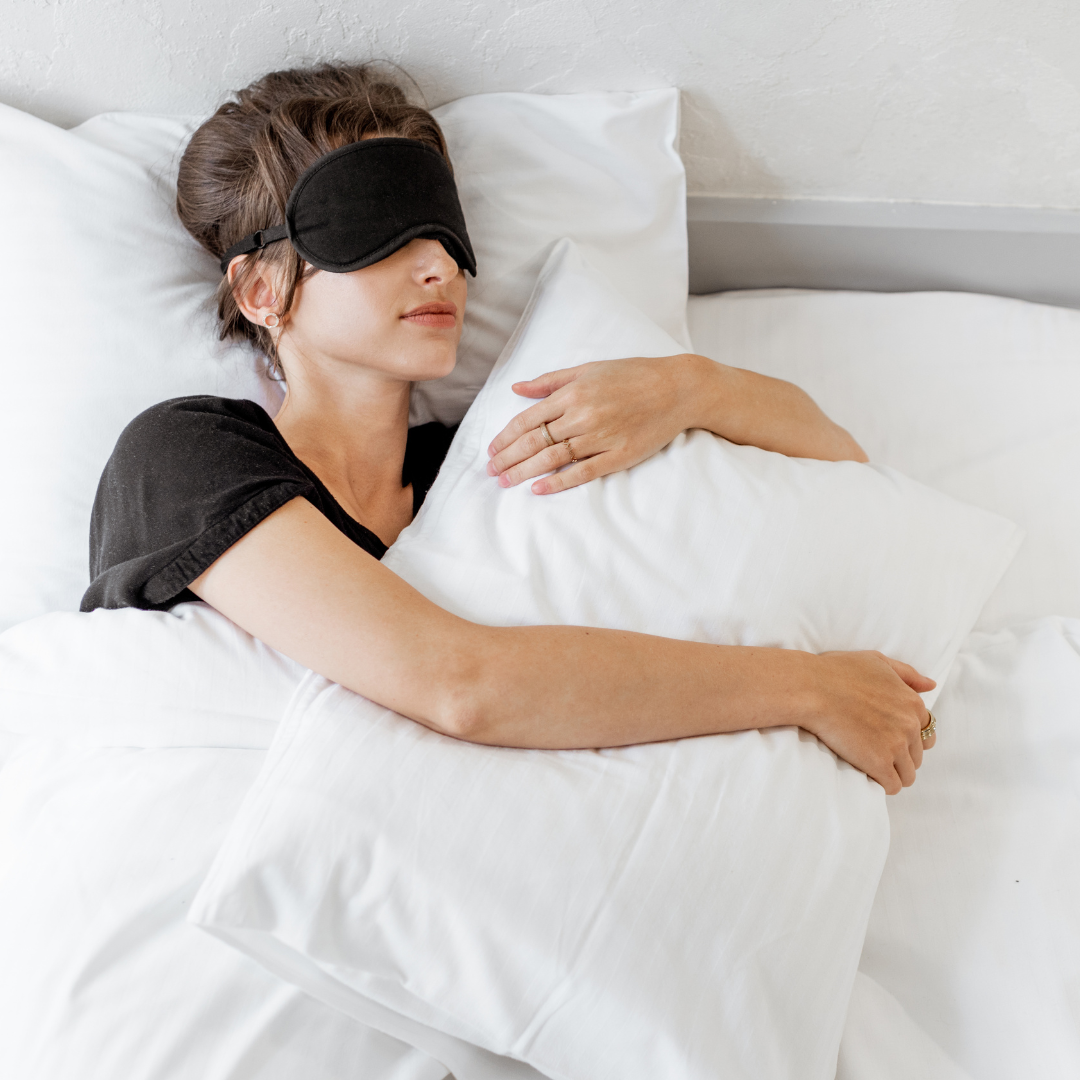|
Sleep is a vital component of our overall well-being, and its impact extends beyond rest and rejuvenation. Did you know that improving your sleep quality can also have a profound effect on pain management? In this blog post, we will explore the fascinating relationship between sleep and pain, and how myotherapy can play a significant role in improving both. Discover how prioritising sleep and incorporating myotherapy techniques can help you find relief from chronic pain and enhance your overall quality of life. Research has shown a strong link between sleep disturbances and increased pain sensitivity. Lack of quality sleep can lower the pain threshold, intensify pain perception, and lead to a heightened state of discomfort. Conversely, improved sleep can alleviate pain and enhance the body's ability to manage pain perception effectively. During sleep, the body undergoes essential restorative processes, including tissue repair, hormone regulation, and pain modulation. Disruptions in these processes can contribute to the development and persistence of chronic pain conditions.
Myotherapists address musculoskeletal pain and dysfunction every day, and one of the most common factors we see in long term persisting pain patients is that their sleep is impacted by pain. For some patients its trouble getting to sleep and finding a comfortable position, for others its being woken up throughout the night due to pain and needing to reposition. Its also important to recognise that for a lot of people in pain, even if they fall asleep and stay asleep, they can struggle to get to the deeper, restful stages of sleep, and they can then have difficulty waking up and can experience heavy fatigue. When it comes to pain management and sleep improvement, myotherapy offers several valuable benefits: Pain Relief: Myotherapists employ various techniques such as deep tissue massage, trigger point therapy, and myofascial release to alleviate pain and tension in muscles and soft tissues. These treatments help reduce inflammation, release endorphins, and promote relaxation, leading to improved pain management and quality of sleep. Muscle Relaxation: Chronic pain often results in muscle tightness and stiffness, further disrupting sleep. Myotherapy techniques help release muscle tension and promote relaxation, enabling you to achieve a more comfortable and restful sleep. Relaxed muscles also facilitate better blood flow and nutrient delivery to the tissues, aiding in the healing process. Stress Reduction: Chronic pain can cause stress and anxiety, which can negatively impact sleep quality. Myotherapy incorporates relaxation techniques, such as gentle stretches and breathing exercises to reduce stress levels. By promoting a state of relaxation, myotherapy can help improve sleep and break the cycle of pain-stress-sleep disruption. Muscular Imbalances: Musculoskeletal imbalances can contribute to pain and discomfort, especially in people who have repetitive daily activities, or people who need to spend long periods of time in certain positions or postures. Myotherapists assess and correct muscular imbalances through targeted exercises and muscular retraining. By addressing these underlying issues, myotherapy helps improve alignment, relieve pain, and enhance sleep quality. Individualised Treatment Plans: Our myotherapists provide personalised treatment plans based on your specific needs. We consider factors such as your pain condition, sleep patterns, and lifestyle to develop a comprehensive approach. This tailored treatment approach ensures that your unique sleep and pain management goals are addressed, increasing the likelihood of successful outcomes. Sleep Routine Suggestions: We're experienced in helping create goals and plans for our patients, including setting up lifestyle routines that optimise your health. We can discuss your sleep routine with you, and consider factors like your mattress, pillow, which way you sleep, bedroom climate, factors like snoring (either your own snoring or a partners snoring!), relaxation techniques like using a sleep meditation or light background music, timing your sleep cycle to ensure you get enough rest. Improving your sleep quality can significantly enhance pain relief and contribute to an overall improved quality of life. The interplay between sleep and pain is complex, but by prioritising sleep and seeking the expertise of a myotherapist, you can unlock the healing potential of restorative sleep. Through techniques like pain relief, muscle relaxation, stress reduction, and muscular imbalance correction, myotherapy can play a crucial role in managing pain and optimising sleep. Remember, a restful night's sleep is not only a luxury but an essential component of pain management. Embrace the power of sleep and explore the benefits of myotherapy to find relief from chronic pain and regain control of your well-being. Don't be afraid to talk with our myotherapists about your sleep patterns and habits, we are here to help and we see people every week who find improvement in their pain through improving their sleep. Book a time with us or phone our clinic on 03 8204 0970.  It has been widely accepted and researched that meditation and in particular, mindfulness meditation can have many benefits for stress management and improvements to concentration and focus. Many studies have explored the impacts of long term meditation on the brain. So we know that meditation can change the brain and improve cognitive function and emotional regularity. How about pain management? Can a meditation and mindfulness practice assist with chronic and acute pain conditions? How can you access these benefits through integrating a regular meditation practice into your wellness toolkit? What is Pain? Firstly, it’s important to note that pain has two main elements. Pain consists of a physical sensation, usually described as unpleasant or undesirable, and an emotional response. Whilst you are experiencing pain in your body, a message is sent through nerve fibres through your central nervous system to your brain to signal that there may be damage or threat of damage and this area is in need of protection immediately. There is the other function of the brain that has the power to enhance or reduce the intensity of this experience. Your emotional response. Your brain will attempt to interpret the sensation, often making a quick judgement to be able to respond in the best way to keep you safe from harm. This often happens with very little thought or awareness as your body has been doing this and responding in this way your whole life. It is automatic and unconscious, initiating your fight or flight response. This has kept you safe and works very well for those moments that threaten your safety. So pain has a very important purpose. Once the initial threat has been removed however, we may be left with the emotional response to the lingering effects of whatever damage was sustained from the event. Here is where meditation can become a very useful tool to restore calm to your nervous system by triggering the relaxation response. This is where you rest and digest, and where tissues and structures of your body can receive the natural healing intelligence of your body restoring its internal balance and optimal function. There are different types of pain. There is the obvious “loud” pain and there is the less obvious, dull aches and mild discomfort which can also trigger the emotional response. These more subtle signs and symptoms of pain can be an early warning sign of things being out of balance and not functioning effectively. Overtime, the emotional effects of low grade chronic pain can impact quality of life and ability to focus, movement and performance. So pain that doesn’t resolve itself within a few days should never be ignored. What Stress & Anxiety Does to Pain? Anxiety can cause you to become hyper alert to pain, catastrophize, overthink, over analyse, even causing a sense of panic, which can all exacerbate symptoms. Stress has been known to decrease your pain threshold by inhibiting the release of Serotonin. Serotonin is a chemical that is released to assist with pain relief. Chronic stress and anxiety takes a toll on your overall health. Mental, emotional, physical & spiritual health are all connected. You cannot impact one without affecting the whole. Therefore when you start to take care of your mental health your physical health will improve. Conversely, when you start taking care of your physical health, your mental health will be positively impacted. So when you adapt practices that are holistic in their approach, you will likely feel the benefits holistically. How Does Meditation Help? Combined with other medical and/or complementary therapies, meditation can offer your body the opportunity to settle into that relaxation response and allow your body to rest and heal physically. Restoring balance and internal harmony, boosting your immune function, and increasing production of Serotonin. Serotonin not only inhibits pain perception, it also acts as a mood stabiliser. So this acts to help regulate both your physical and your emotional pain responses. The impacts of relaxation and mindfulness can help you lessen the intensity of the experience of pain. There are several meditation and mindfulness techniques that can help this process. The way to begin is just by practising and trying out different guides, teachers, sounds, a local meditation group and/or meditation app to find a few techniques and styles of guidance that resonate with you. Everyone is different, and this is a very personal preference. If you try one style that you wasn’t for you, keep exploring! There is no right or wrong may to practise, so just do whatever works for you, and allow your practice to evolve and change overtime as you become more familiar with it. Stay tuned for your opportunity to join a guided meditation group at Simple Wellness Myotherapy! We will be offering an evening group once a week of consisting of a fully guided meditation for you to experience the benefits of practising in an intimate group setting. This will help get you started and you will be able to ask questions and receive support as you develop and deepen your practice. Want to book an appointment with Jacqui, our Remedial Massage Therapist and Meditation teacher? She's here during school hours on Mondays and Wednesdays, and afternoons on Thursdays. |
Meet Our Team
We have a team of great practitioners available 7 days a week at our Rowville clinic. Archives
July 2024
Categories
All
|
Got a question about Myotherapy?
Contact Mel by phone, email or Facebook
|
Simple Wellness Myotherapy & Remedial Massage Clinic
Shop 12B 150 Kelletts Rd Rowville VIC 3178 |
Phone us on
03 8204 0970 |


 RSS Feed
RSS Feed